You are here
New Releases
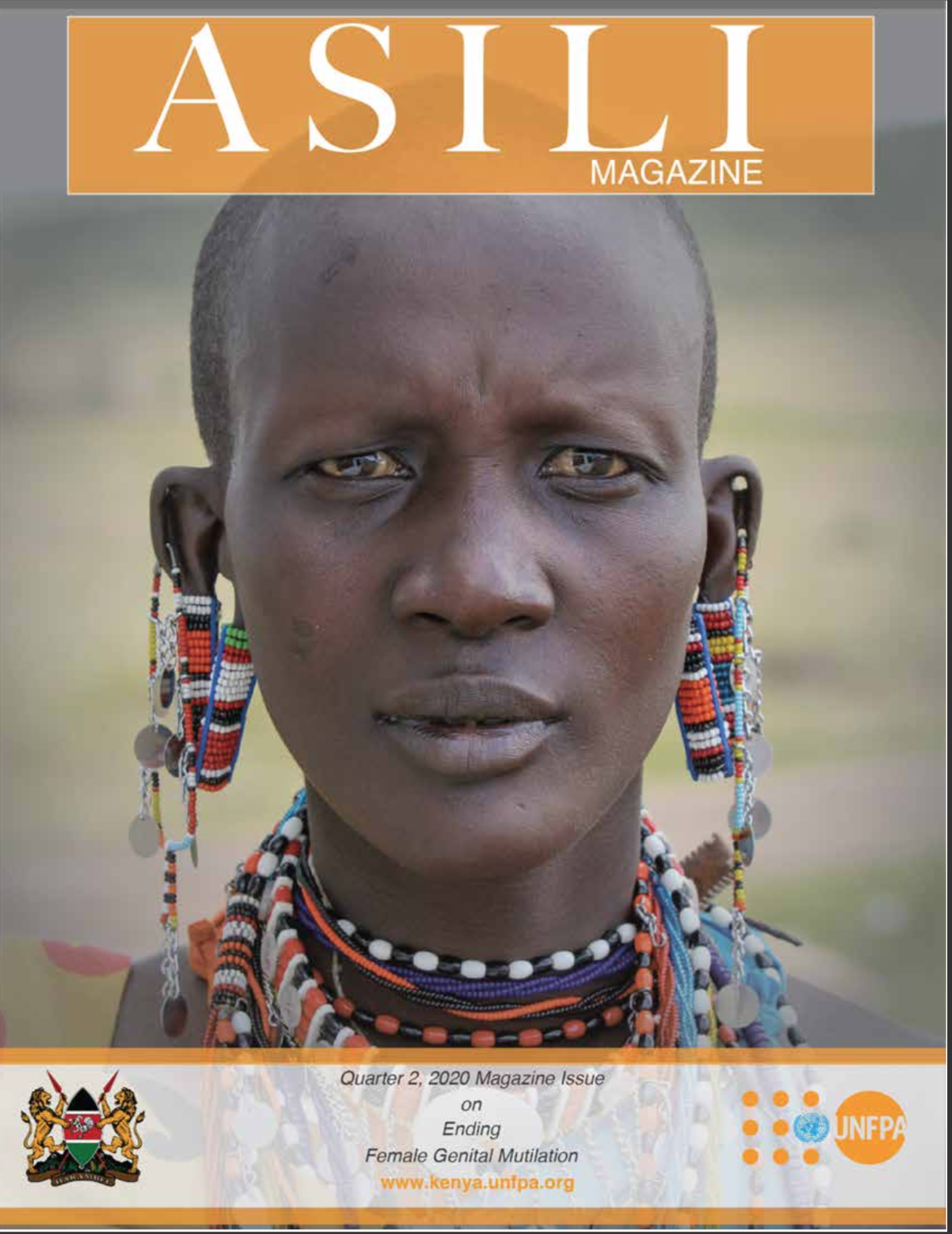
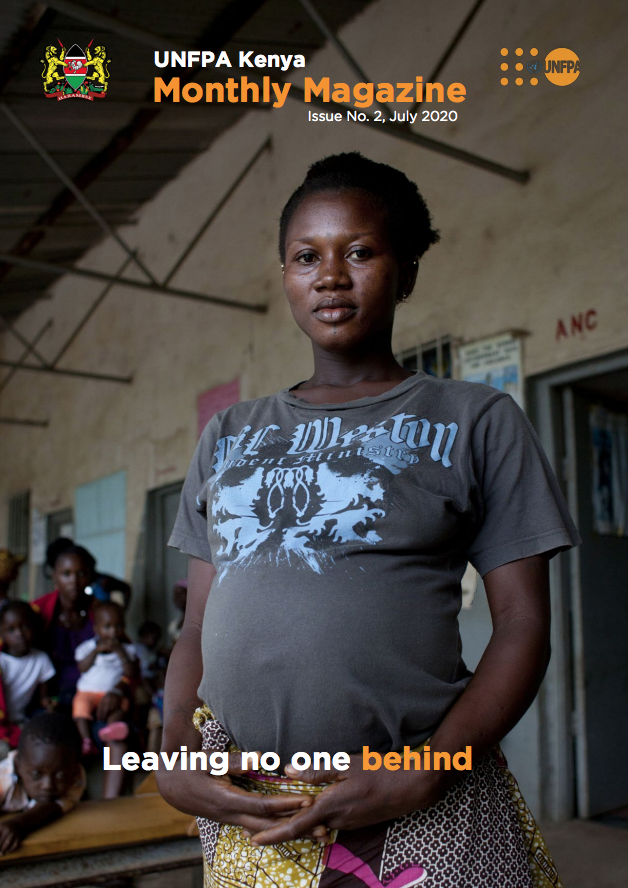
KCO July Newsletter
Following the lifting of lock down measures against Nairobi City County, there has been noticeable growth in Covid-19 cases in nearby counties such as Machakos, Kajiado, Kiambu, Narok and Nakuru due to increased movement and interaction within the population. Counties lying along borders with Tanzania (Kajiado and Migori) and Uganda (Busia) have also shown a high growth rate in Covid-19 cases attributed to targeting testing of truck drivers.
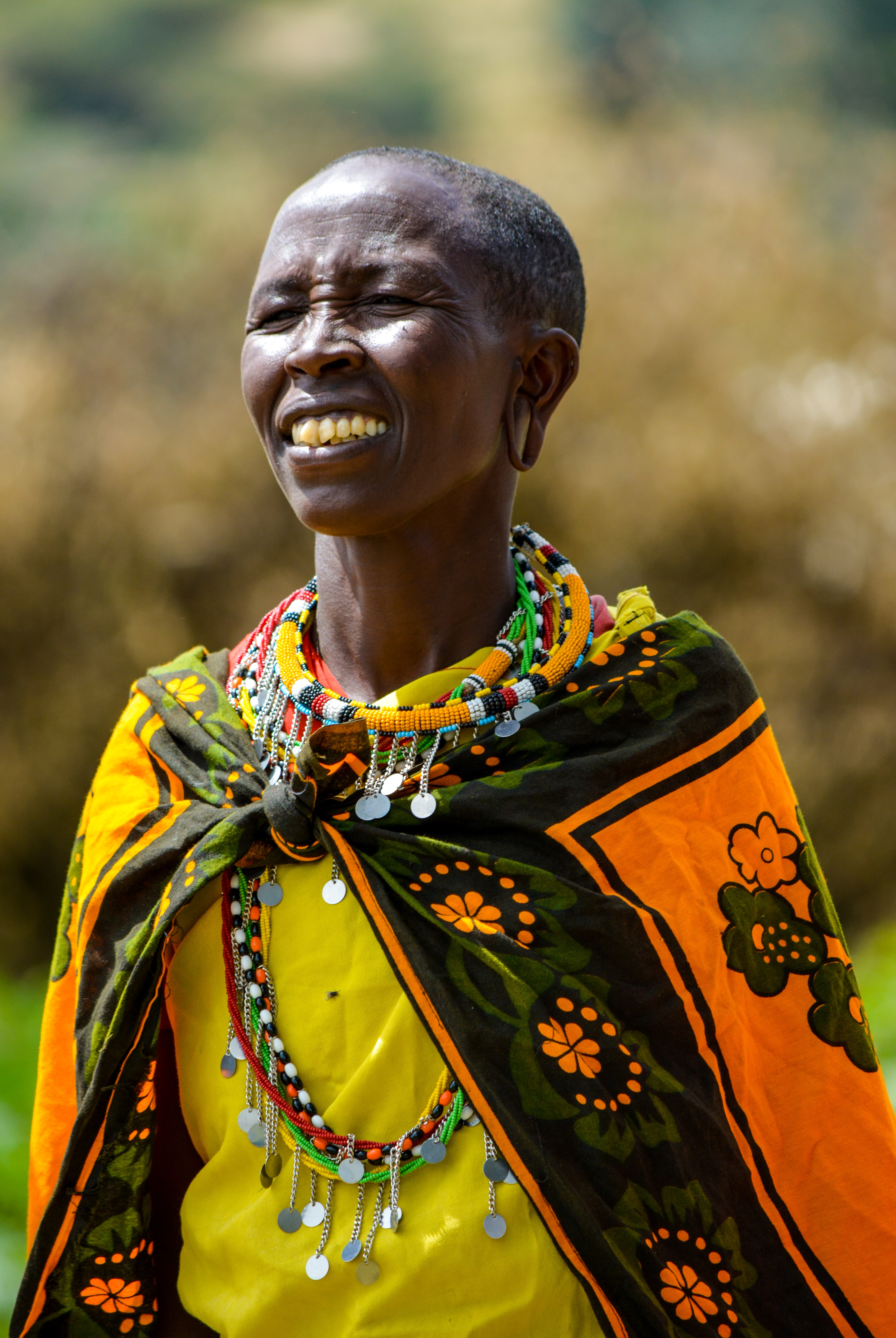
UNFPA Kenya: 2019 Annual Report-Because Everyone Counts
Let us listen, support and invest in the youth to end FGM by 2030

|
emale genital mutilation (FGM) is one of the most horrific human rights violations imaginable that negatively affects the health, education and overall
ANNUAL REPORT 2019
development of 200 million women and girls and ending it is an urgent moral imperative.
We have made tangible progress, 25 years since the International Conference on Population and Development (ICPD) in Cairo, where countries agreed to end the practice. But we are facing headwinds. In the places where it is most prevalent, FGM is declining but not at
the speed and scale to meet global commitments. But these countries are experiencing high rates of population growth — meaning that the number of girls affected could continue to grow, while they continue to grapple, within some ethnic groups, with persistent social norms and cross-border propagation of the practice.
Indeed, the United Nations projects that the population of young people in the least-developed countries — among the places where FGM is rampant — will jump to 62 per cent by 2050. That leaves more girls vulnerable than ever before. Last year, more than four million girls were victims of FGM, and if urgent action is not taken, up to 68 million could be subjected to it by 2030. So, we must listen to, support and invest in young people.
Africa must leverage the power of youth in high-risk countries, where support for youth between 15 and 19 against FGM is much lower than among people aged 45 to 49.
Increasingly, young girls are growing up with a much higher chance of remaining intact compared to their mothers and grandmothers. This generation can champion a global movement, transforming traditional norms and inspiring their peers to stand up to their elders by saying ‘No’ to this form of gender-based violence.
In doing so, young people need to know that their governments are firmly behind them. That is why the Government of Kenya will work with all relevant
stakeholders to end FGM by 2022, eight years ahead of the deadline to meet the target set under Sustainable Development Goal 5.
In a country where FGM is still prevalent despite being outlawed in 2011, Kenya is paving the way for other African countries to aim higher.
Kenya is setting the bar for the rest of the continent and globally with innovations like the Johari Beads Initiative,
A global investment of $2.4 billion (Sh240 billion)
is enough to eliminate FGM in 31 priority countries
this decade, at an average $94 (Sh9,400) per case.
a multi-stakeholder partnership between UNFPA, the government and EcoBank. Turning traditional beadwork into a viable commercial enterprise is empowering rural girls and women to take control of their future while spurring social change in their communities. The government, in the build-up to the ICPD25 Summit in Nairobi last November, convened the neighbouring countries of Ethiopia, Uganda, Somalia and Tanzania to evolve solutions to cross-border FGM implications.
The promise of such partnerships underscores the increasingly urgent need to back our rhetoric with concrete financial commitments. The good news is that we now know exactly how much it will cost to achieve our goal. UNFPA estimates that a global investment of $2.4 billion (Sh240 billion) is enough to eliminate FGM in 31 priority countries this decade, at an average $94 (Sh9,400) per case.
Kenya and UNFPA, alongside the Denmark, as the ICPD25 co-conveners, compelled the international community to makefirm commitmentsto complete the ICPD Programme of Action by 2030. Doing so requires eliminating all harmful practices against women and girls, including FGM.
The overwhelming energy and passion of many young activists defying social norms to raise awareness about the dangers of FGM seen in Nairobi can propel us to reach our goal.
Let all African countries heed our call to rid the continent of FGM. Besides the commitments in Nairobi, let us remember the pledge by AU member states 10 years ago with the launch of the Initiative on Eliminating Female Genital Mutilation.
Let us give our youth the opportunities they need to forge a brighter future and to deliver on our promise to keep all our women and girls safe from the ‘cut’.
An opinion piece Co-authored by H.E President Uhuru Kenyatta and UNFPA Executive Director, Dr. Natalia Kanem
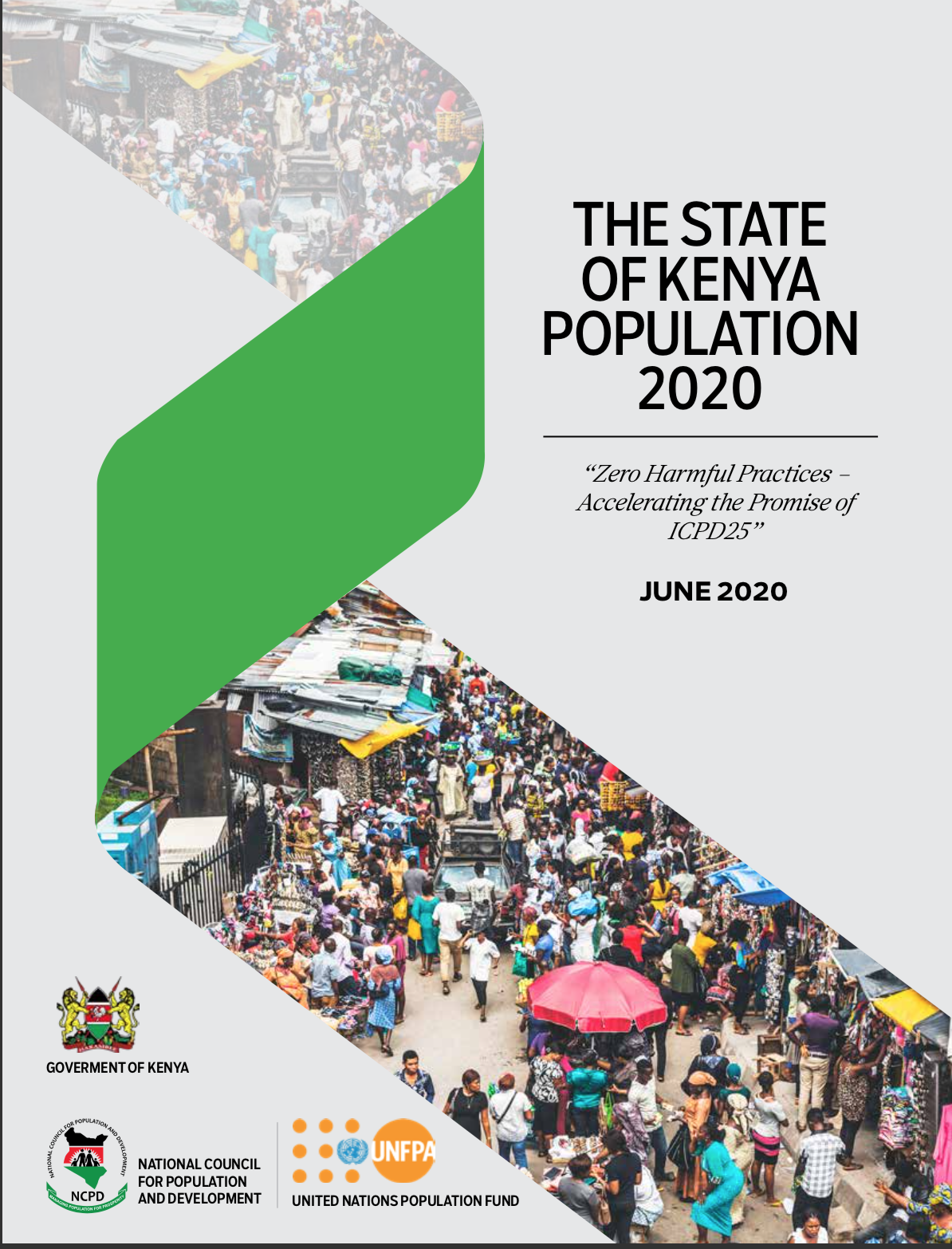
State of Kenya population
The State of Kenya Population Report, 2020focused on getting to zero harmful practices with a special focus on mar- riage and motherhood in childhood; Female Genital Mutilation (FGM) and son preference. During the Nairobi Summit on ICPD25, Kenya made commitments towards accelerating the promise on zero harmful practices and committed to eliminating, by 2030, all forms of Gender Based Violence (GBV), including child and forced marriages, by addressing social and cultural norms that propagate the practice while providing support to women and girls who have been affected
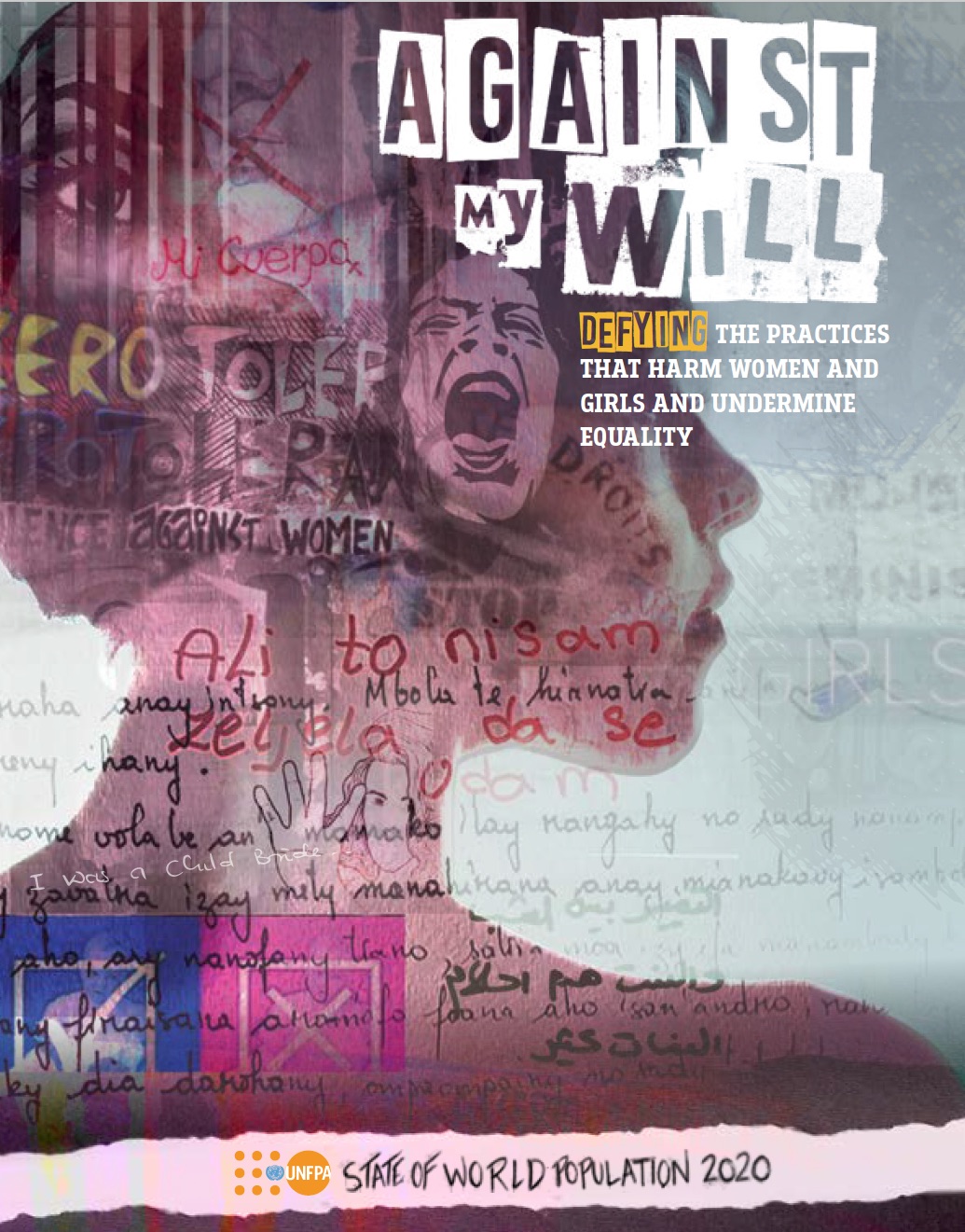
Against My Will
Every day, hundreds of thousands of girls around the world are subjected to practices that harm them physically or psychologically, or both, with the full knowledge and consent of their families, friends and communities.
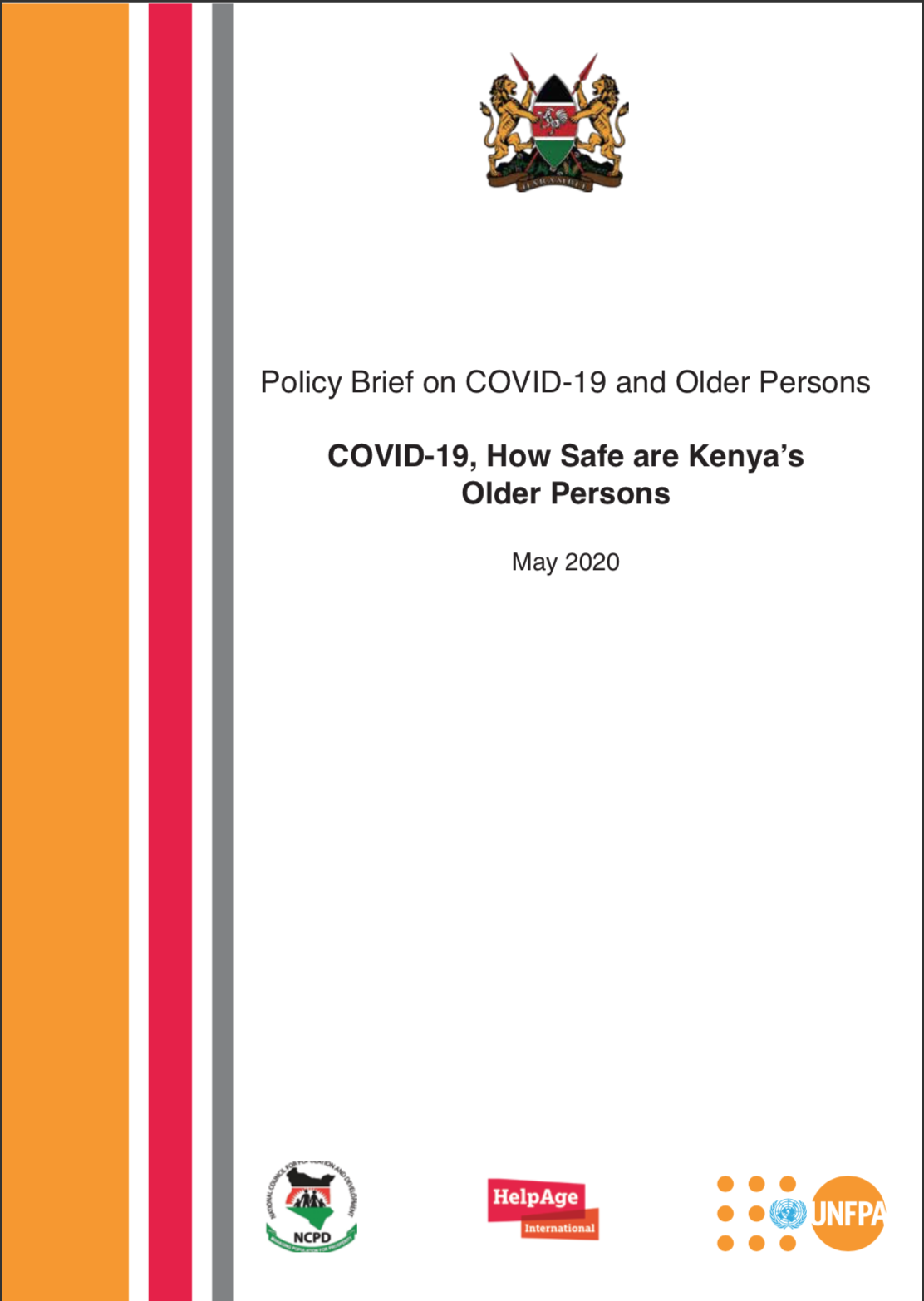
Policy Brief on COVID-19 and Older Persons COVID-19, How Safe are Kenya’s Older Persons May 2020
Coronavirus disease 2019 (COVID-19) is a serious respiratory viral infection caused by a novel corona virus recently named as SARS-COV2 (MOH, 2020). Identified in December 2019 in China’s Wuhan city, Hubei province, COVID-19 mainly causes upper and lower respiratory tract infec- tions. The infection has spread rapidly, affecting almost every country in the world and resulting in more than 5 million infections and three hundred thousand deaths by mid May 2020. Evidence from countries with a high number of COVID-19 related deaths shows older persons to be more at risk.
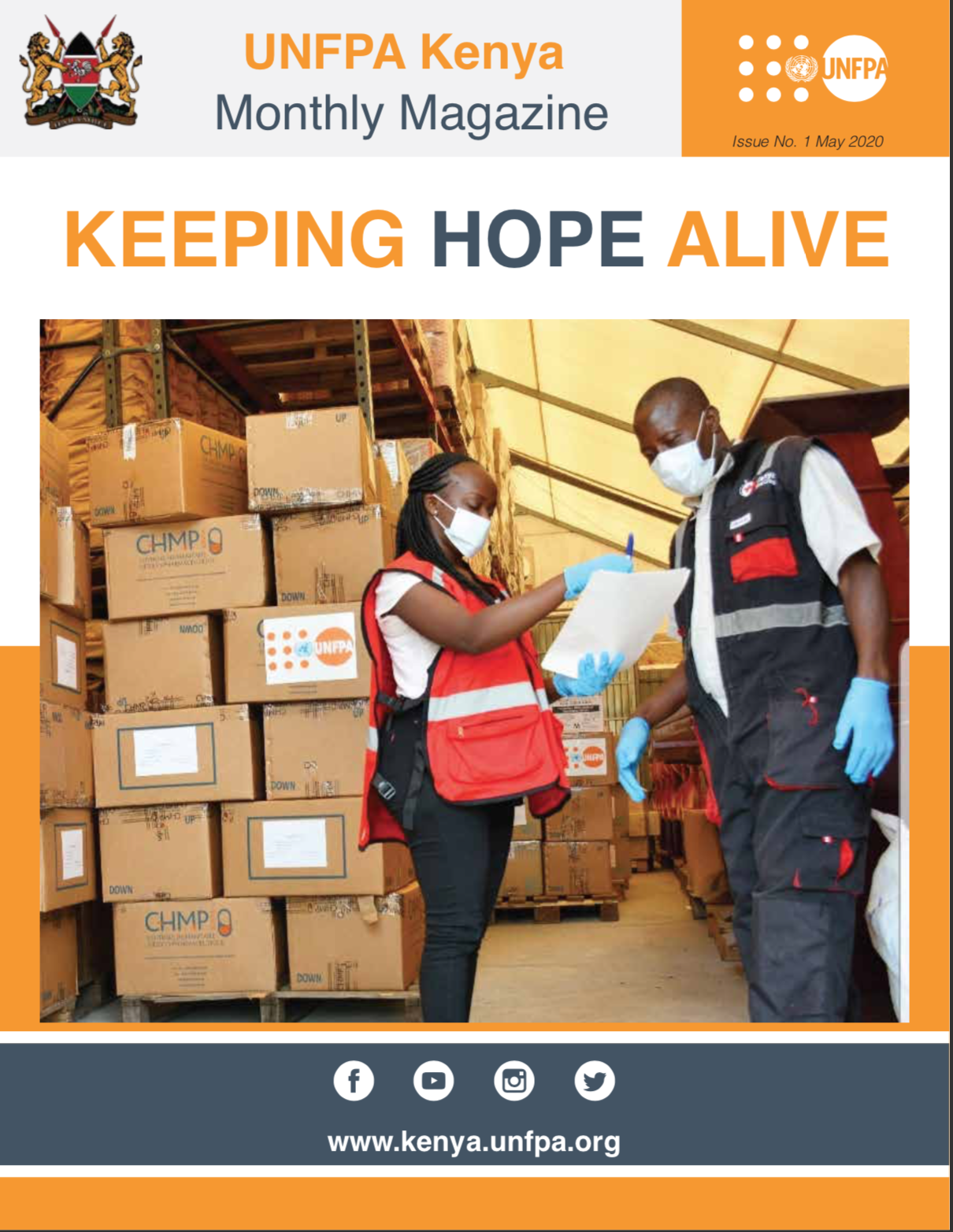
KCO May Newsletter
UNFPA’s cardinal responsibility to protect and uphold rights that predicate the dignity and autonomy of human bodies has been amplified under the Covid-19 pandemic whose malignant spread in over 33 coun- ties in Kenya has cast not so palatable experiences in the coming months
.Devastating floods that decimated 288 lives and the worst locust infestation in 70 years have excerbated the effects of the Covid-19 pandemic in Kenya.
As the country and communities grapple with the multiple and intersecting ramifications of the pandemic and other emergencies, provision of sexual and reproductive health rights, and addressing susceptibility to gender based violence and harmful practices present pertinent and urgent needs.
Documentation of predictors a calamitous scenario is gradually gaining authority in Kenya. Data from the national GBV Hotline showed an increase of 25% in GBV cases between March and April 2020 while uptake of modern contraception has shrunk by 17% between January and April 2020, according to the health sector data collation system(DHIS2).
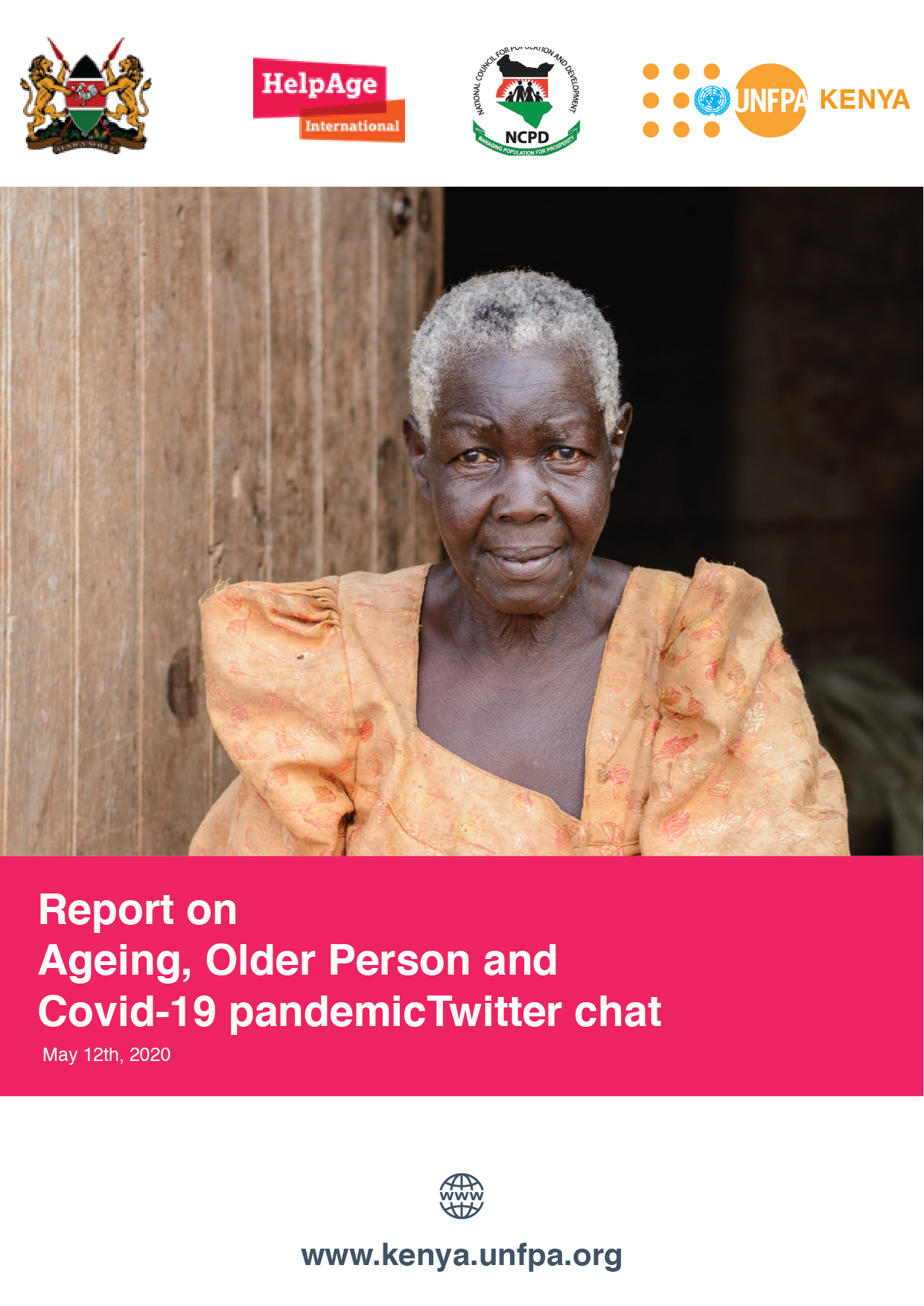
Report on Ageing, Older Person and Covid-19 pandemicTwitter chat
COVID-19 was declared as global pandemic by World Health Organization on March 11, 2020. The global trends show that the older persons aged 65 years and above and persons with pre- existing health conditions such as cardiovascular diseases and diabetes among others are more susceptible to the disease. The data also shows that men are more likely to contract the virus than women.
The confirmation of the first case of COVID-19 infection in Kenya was announced by the Ministry of Health on 13 th March 2020. By 14 th April 2020; 8,717 persons have been tested out of whom 216 persons have tested positive for coronavirus disease. Among them, 15 are aged 60 years and above, 138 are aged 30-59 years, 58 are aged 15-29 years and 5 are aged0-5 years. To this date 41 of those who have tested positive have recovered and discharged from hospital and nine (9) persons have succumbed to the disease. 2331 contacts have been monitored out of whom 1,729 have been discharged and 602 are currently being monitored.
Consequently, the Government of Kenya declared the disease as a national emergency. Based on the high transmission rate of the Coronavirus, the government has put in place various measure to curb the spread of the disease. The measures included, keeping social distance, watching of hands, wearing masks in public places, reduction by half the number of persons that can be carried by private and public transport vehicles, curfew from 7pm to 5am, and restriction of movement in and out of Mombasa, Kwale and Kilifi Counties and Nairobi metropolitan. The government has also identified several health facilities that will be utilized as isolation and treatment centers and other facilities as quarantine centers.
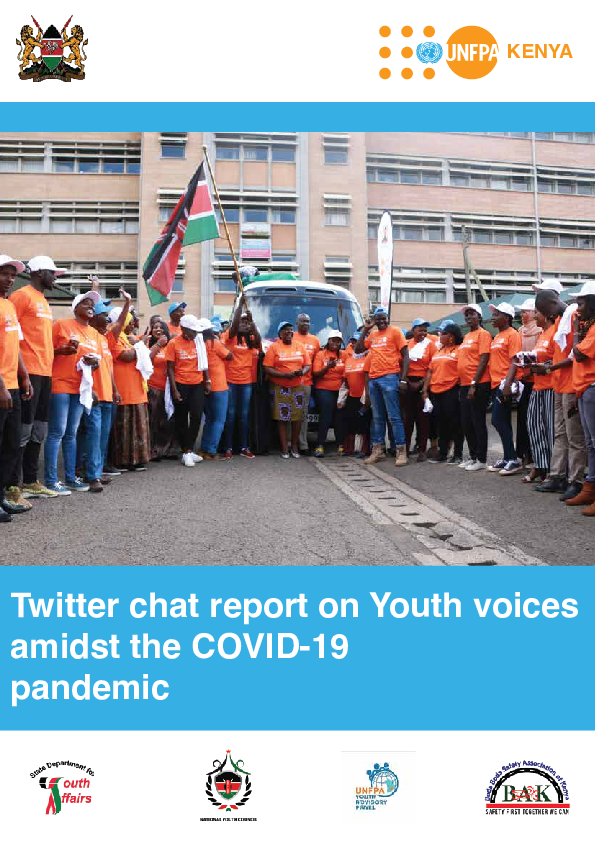
Report on Youth Voices twitter chat
The world is currently grappling with the COVID-19 pandemic that has severely stretched the health care systems of most countries and significantly compromised the social and economic order at micro and macro levels. One of the greatest con- stituency at risk of infection is the young people. Concerns continue to be raised on the low risk perception among young people as evidenced by incidences of breach or circumvention of preven- tive measures such as physical distancing and staying at home where possible. Similarly, the disruption of education with the closure of schools also comes with possible Sexual and Reproduc- tive Health and Rights (SRHR)
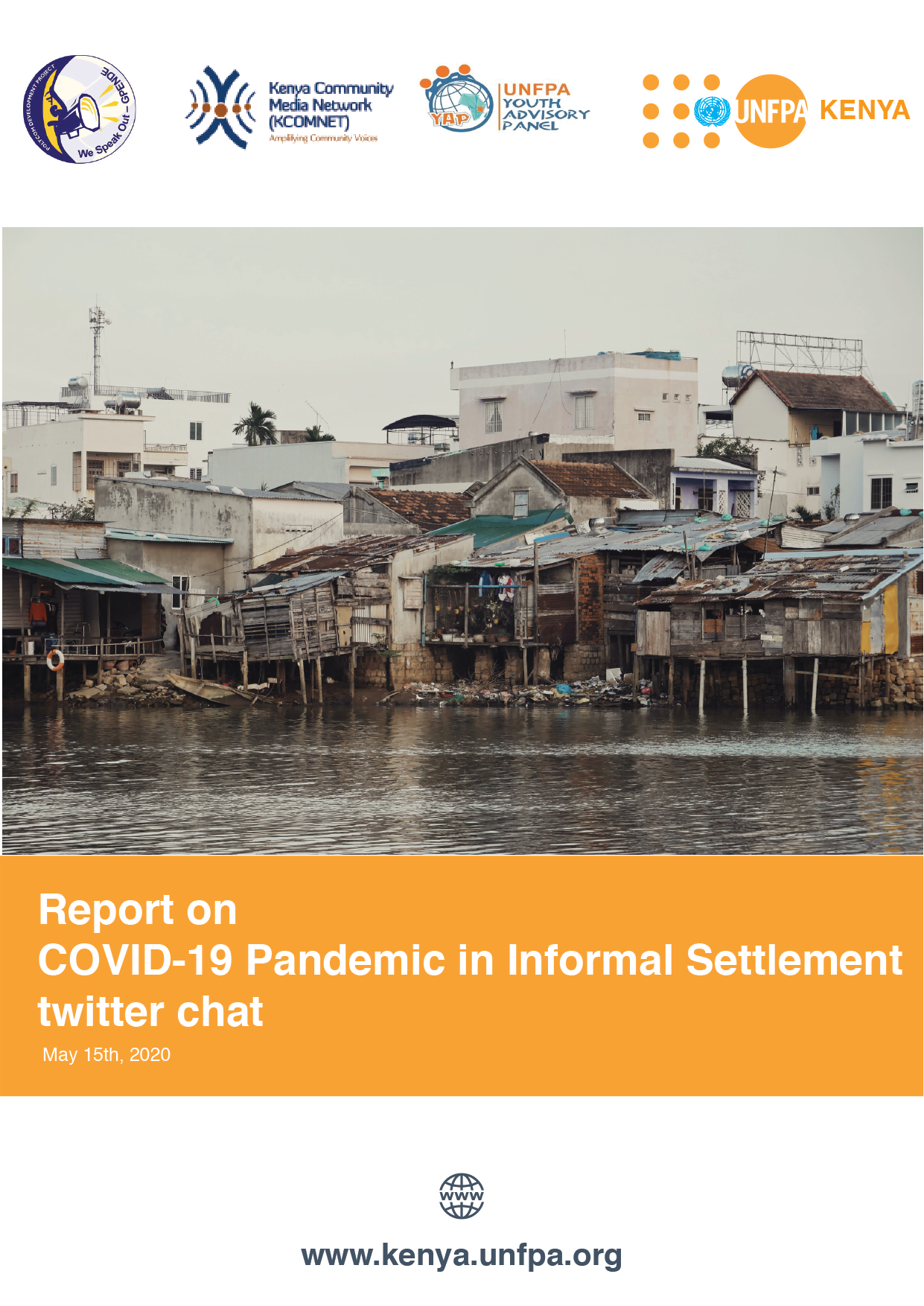
Report on the Twitter Chat on the COVID-19 Pandemic in Informal Settlement
The world is currently grappling with the COVID-19 pandemic that has severely stretched the health care systems of most countries and significantly compromised the social and economic order at micro and macro levels. As it stands, there are an estimated 4,200,953 confirmed cases of COVID 19 globally, with 284,150 deaths and 1,502,591 recoveries. In Kenya, there have been 672 confirmed cases, 32 deaths and 41 recoveries as of 14th May 2020. Whereas the burden remains relatively low compared to other countries of the globe, the risk of community infection remains significantly high and this is corroborated by the Ministry of Health which links all recent cases to community infections.